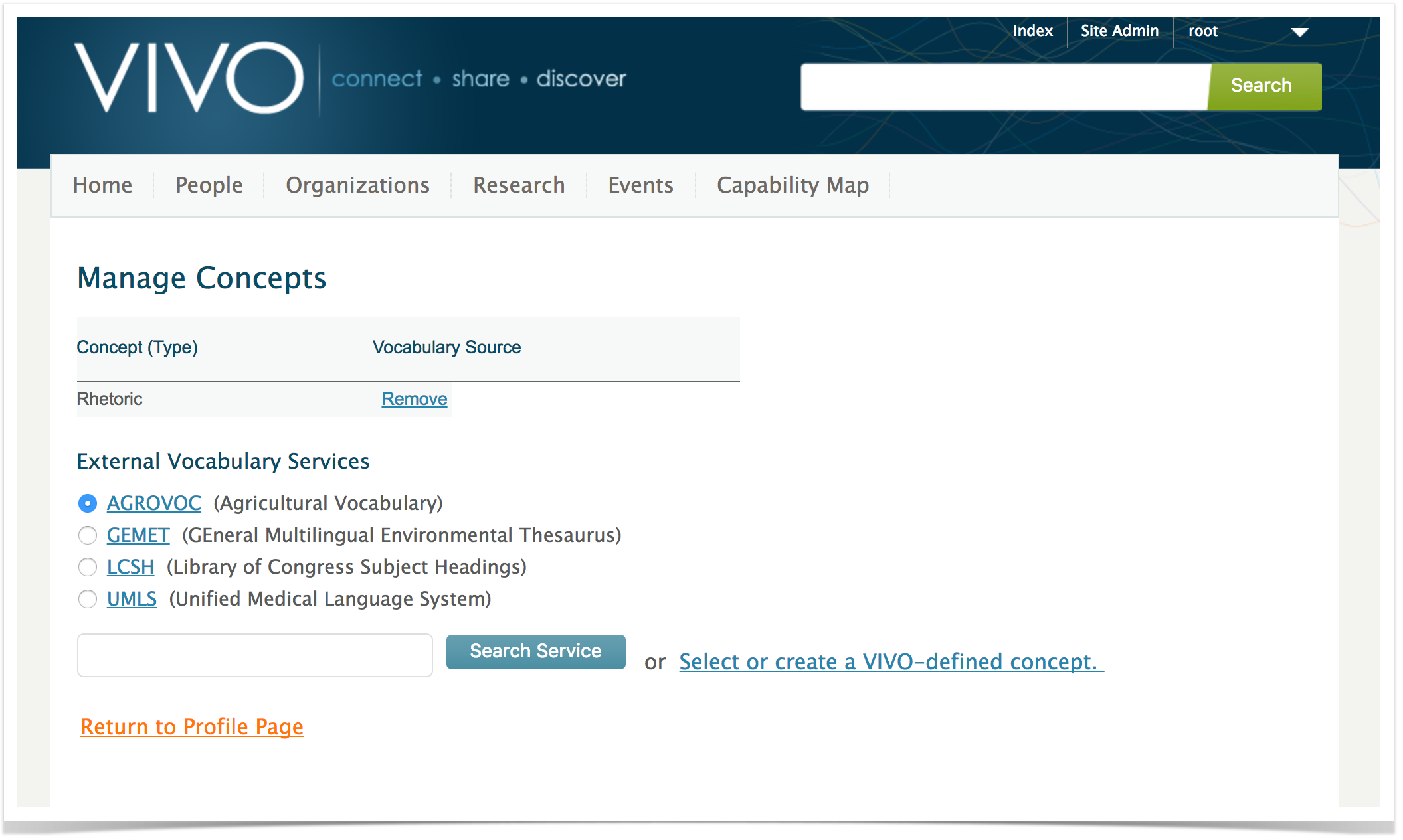VIVO Documentation
Old Release
This documentation relates to an old version of VIVO, version 1.11.x.
Looking for another version? See all documentation.
Overview
VIVO provides the ability to use external vocabularies to represent the research areas of scholars, and the concepts pertaining to scholarly works. External vocabularies that provide RDF can be used with VIVO. Using an external service, a curator, or page owner may query the external vocabulary for terms, and select terms representing the work or scholar. The terms are fetched from the external service and added to the VIVO triple store. Links from the work or person are added to connect the person or work to the selected term or terms.
See below
Configuring the UMLS External Vocabulary Service
The UMLS External Vocabulary Service is provided by the National Institutes of Health in the United States. They require an apikey to use the service. You can get an apikey at no charge from the NIH. Visit https://www.nlm.nih.gov/databases/umls.html for general information, and https://documentation.uts.nlm.nih.gov/rest/authentication.html for information on generating an API key.
Once you have the apikey, create a text file called umls.properties. Your file should look like the one below, with your value for apikey substituted.
apikey = yourumlsapikey
Place this file in the directory VIVO/installer/webapp/src/main/webResources/WEB-INF/classes/ in your source tree and reinstall VIVO. (You can copy the file directly to WEB-INF/classes inside the VIVO directory under Tomcat's webapps directory if you want to use UMLS right away without reinstalling VIVO and restarting Tomcat. Note that the file will not be preserved through future reinstallations unless you also add it to your source tree.)
Notes
When external concepts are added to VIVO, they retain their original URI from the external vocabulary. Since we have no way of knowing whether these URIs represent OWL classes or RDF instance data, VIVO does not assert a type for the concepts, which will therefore only be interpreted as being of type owl:Thing.
To add a new external vocabulary, see Adding External Vocabularies

